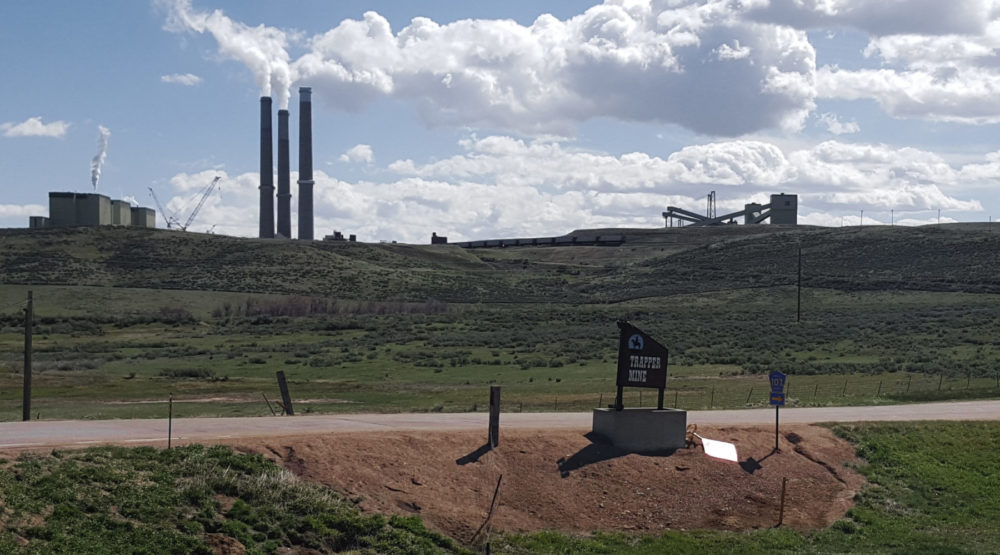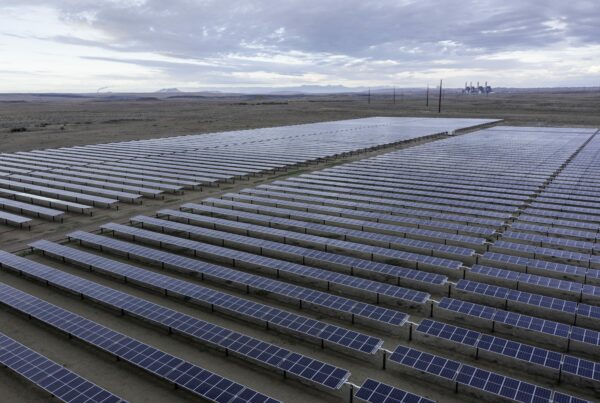Today Tri-State announced the first part of their long-awaited Responsible Energy Plan, which described their intention to close two coal plants and one coal mine ahead of schedule.
While the plan shows that Tri-State is finally starting to shift their coal-intensive portfolio, there’s still good reason to be cautious about Tri-State’s intentions. Here, we’ll break down what’s in the plan and why we still think that Tri-State has a long way to go before they become the forward-thinking utility they are claiming to be:
What’s in the Announcement
1. Retirement of coal generation in Colorado & New Mexico
Escalante Station in New Mexico will be retired by 2020, and the Craig Station and Colowyo Mine in Colorado will be retired by 2030
2. Transition Plan
Tri-State announced that they will work with local and state leaders to help support impacted workers and communities
3. Greenhouse Gas Reduction
Tri-State will seek legislation in Colorado to provide certainty on state greenhouse gas reduction rules
This is big news! Everyone who helped move LPEA towards cleaner energy had a hand in in this announcement and should take pride in this achievement.
But this new plan still isn’t enough. While it’s great that Tri-State is moving towards reducing their carbon emissions, there are still other concerns that need to be addressed:
-
No plan for local generation
Tri-State’s limited, restrictive contracts are still in place, even with this new announcement. Local communities should have a chance to build their own local generation resources and be part of this energy transition. Local grids help increase reliability of the distribution system and also help aid local economic development. LPEA’s 5% cap on local generation is about maxed out- why is Tri-State still keeping LPEA from working directly with its member-owners and increasing our local energy supply? Tri-State didn’t even let its members participate in the plan, and so they couldn’t fully consider both the desire and opportunities for renewable resources in communities like ours.
-
Tri-State still seeking federal regulation
Tri-State is still attempting to be rate-regulated under the Federal Energy Regulatory Commission (FERC), despite numerous complaints, concerns, and unanswered questions from member cooperatives, the Colorado Public Utilities Commission (PUC), and state legislators. Tri-State claims that we are all one happy co-op family while actively ignoring member concerns at the same time.
-
Uncooperative Principles
Tri-State and its members are theoretically guided by “cooperative principles”, one of which is Autonomy & Independence. As mentioned above, Tri-State’s restrictive contracts limit members ability to develop their own resources and generation.
Another cooperative principle is Voluntary and Open Membership, which means that cooperatives ought to be able to terminate their Tri-State membership and pursue other avenues of generation. Instead, Tri-State piles years of legal battles on cooperatives who are trying to achieve independence. LPEA asked for their buyout number last July, and instead of working cooperatively with the co-op Tri-State has issued a moratorium on giving buyout estimations at all. Tri-State also sought to dismiss LPEA’s filings at the PUC, which asked the regulator to help give LPEA a fair exit fee.
So while we are excited to see that Tri-State is finally stepping up to the plate and moving towards a responsible energy future, there are still many improvements to be made. We still want Colorado energy decisions to be made in Colorado. We want more opportunities for local generation so that our economies right here can benefit from the new energy landscape. And we need Tri-State to respect our autonomy: if a co-op wants to be independent there should be clear, straightforward channels to do so.
Tri-State will announce more elements of its Responsible Energy Plan next week- stay tuned for updates! As always, ask questions, stay engaged, and make sure your voice is heard!



